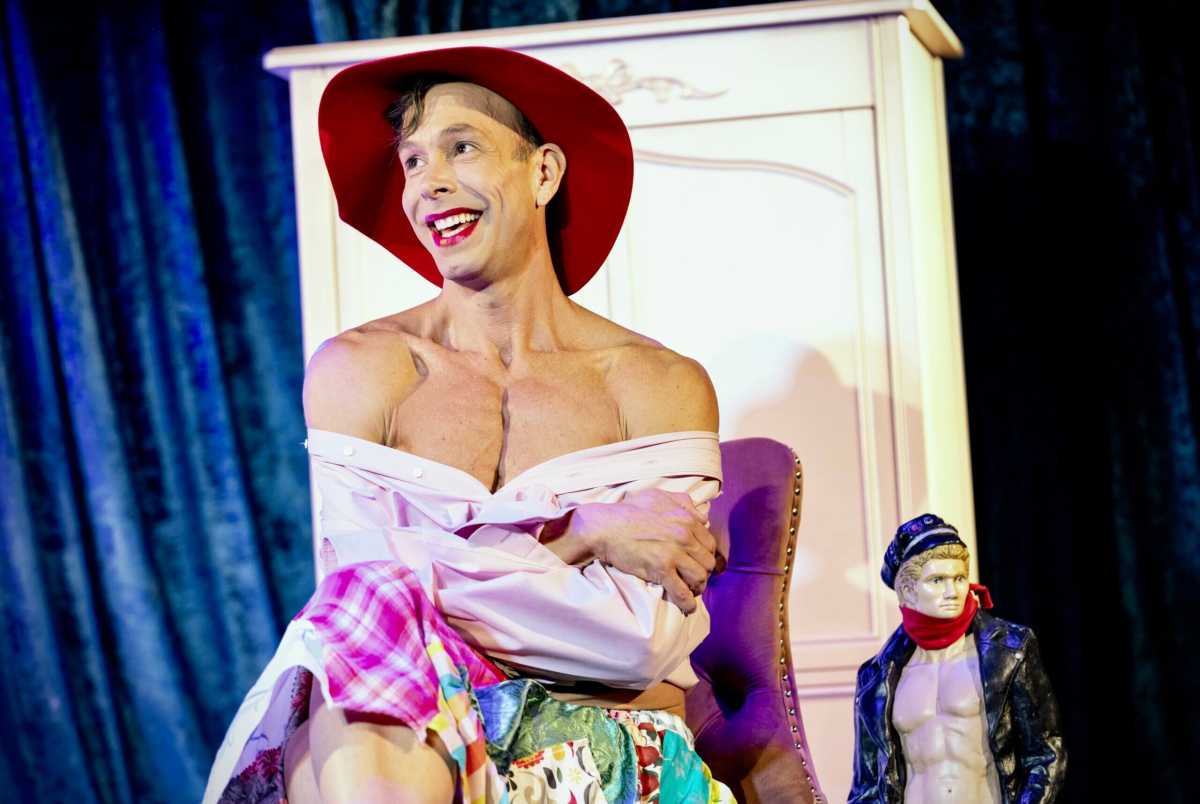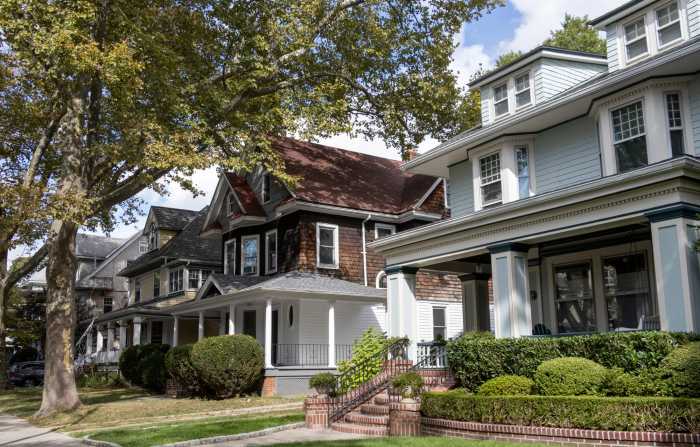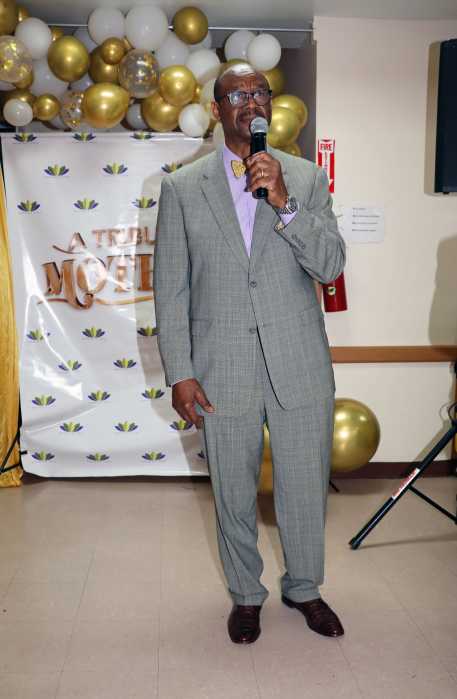Wade McCollum’s tour de force performance as Kenneth (later Kate) Marlowe in “Make Me Gorgeous” is easily the best solo show to hit New York in many seasons. It is, in a word, phenomenal, and beyond being brilliantly entertaining and completely spellbinding, the play rescues important figure in LGBTQ history from obscurity.
Long before Stonewall, there were sexual renegades — people who dared to live authentically and at odds with the strictures of “conventional morality” in the first half of the 20th Century. They occupied a world largely out of sight where men, mostly, could explore and express their true natures. Then, there were those who never hid, or at least didn’t pretend to be anything other than who they were.
Kenneth Marlowe, born in 1926, was one of those, larger-than-life, vibrantly out personalities who, starting in the 1940s, was a drag performer, the madam of a stable of gay call boys in Los Angeles, and, in the early 1970s, surgically transitioned to become Kate Marlowe.
Marlowe told his story in nine books over his career, notably “Mr. Madam” in 1964, which in a gushing way told the story of his life with a stable of “working boys,” but the book had languished in obscurity until playwright and director Donnie discovered it.
“I was writing a play about a woman who had a floating bordello on the Willamette River in Portland, Oregon,” Donnie said, “and in 1890, she had been arrested not for prostitution but because she didn’t collect liquor tax.
“I thought, ‘Is there a man out there in that era — or any era — who had been a Madam?’ And Kenneth Marlowe came up. And I started quite a deep dive into that.” That dive resulted in his editing a new edition of “Mr. Madam,” which in turn led to “Make Me Gorgeous.”
What fascinated Donnie about Marlowe was “the incredible adventure of becoming a drag queen — or gender illusionist — in Chicago in the 1940s.” Donnie adds that what’s significant about Marlowe is the sense of dignity he carried in whatever he pursued, no matter what he was pursuing — and no matter if it raised eyebrows.
It raises the question of how to translate a life to the stage which, as Oscar Wilde would have said, was “crowded with incident,” particularly when, as Donnie says, “you have 90 minutes to tell a story.” That’s the challenge. Marlowe had many different vocations in his life. He was a hairdresser to the stars, Christian missionary, writer, female impersonator, and served in the Army. He wrote horoscopes for a newspaper, produced gay porn, and her final transition is said to have inspired Armistead Maupin to appropriate elements of Marlowe for the character Anna Madrigal in “Tales of the City.”
The dramatic solution is to have Marlowe tell the story chronologically, and as the twists and turns pile up, the audience is shocked a bit, surprised a lot, and is ultimately totally besotted with the character on stage. It is Marlowe’s indomitable spirit, the refusal to let any setback, no matter how harrowing, stop his search for joy (and financial stability) that drives the play. Moreover, the show is conceived as a nightclub entertainment, and McCollum interacts, and flirts, with the audience; he’s in motion throughout the entire piece — as Marlowe apparently was in his/her life.
McCollum performs the role with an energy that fills the theater, and it would be folly even to try to resist being swept up in it.
The true genius of this play, though, is the way in which playwright and director Donnie constructs the world around Marlowe that is constantly simmering in the background — far more threatening than welcoming. Marlowe lived in an era when it was not safe or easy to be gay, and it was significantly more dangerous for people who were out and dared to live publicly and refused to even pretend to live conventionally. Just beneath the performative exuberance of the play is the dark reality of a largely hostile world. Even as one is nearly breathless with laughter at Marlowe’s antics, the visceral awareness of the costs of a life on the fringe gives the play a moving poignancy as well. As we meet Marlowe and his insistence on living authentically, we are reminded of the high prices often paid in the fight.
It’s impossible to watch this play and not be keenly aware of, and saddened by, how much fighting there is left to do. Whatever other theater you may have planned this season, do not miss this.
Make Me Gorgeous | Playhouse 46 at St. Luke’s | 308 W. 46th Street | Mon, Thurs 7 p.m.; Fri, Sat 8 p.m.; Sat 2 p.m.; Sun 3 p.m. through December 31 | $39-$89 ($129 VIP package available) |













